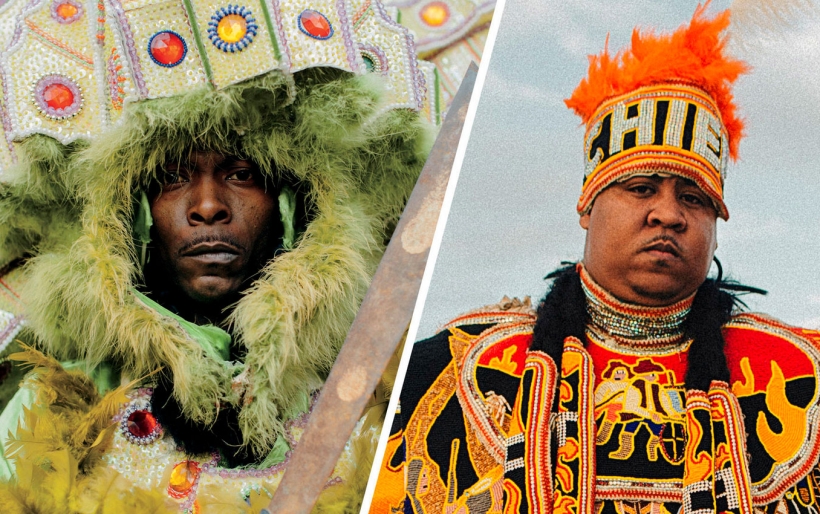Due to the coronavirus pandemic, New Orleans decided that traditional Mardi Gras parades would not happen this year. According to the city of New Orleans website, Mardi Gras is not cancelled, as it is a religious holiday, although the parades and some public celebrations have not happened.
The Mardi Gras Indians have played an important and significant role in the history of New Orleans dating back to the mid 19th Century.
Recently on NPR’s World Cafe, New Orleans correspondent Gwen Thompkins talked with Jermaine Bossier and Romeo Bougere, the Big Chiefs of two rival gangs (the 7th Ward Creole Hunters and the 9th Ward Hunters, respectively), to discuss making music together as the 79rs Gang.
Thompkins says that there is no more spectacular sight than that of a Mardi Gras Indian: a man, woman or child, on the street, dressed head-to-toe in a beautiful, sparkling, hand-sewn sequined suit adorned with plumes, feathers and headdress.
Since the 19th century, African Americans in New Orleans have paid homage to the assistance their forebears received from Native Americans during slavery by honoring Native traditions, both visually and in song. Gwen tells us that Mardi Gras Indians look at Native American culture through an Afro-centric lens, and that local tribes, also known as gangs, represent predominantly black neighborhoods throughout the city. Many have done so for generations.
